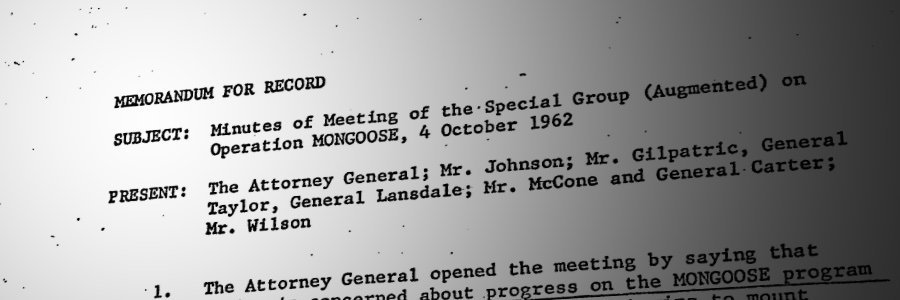Kevin Poulsen, the news editor at WIRED.com, is fighting one of the higher profile Freedom of Information Act lawsuits under way: The fight to have transparency activist Aaron Swartz‘s Secret Service files released. In this week’s Requester’s Voice, Poulsen explains how WIRED uses public records to get the “big ones,” why leakers are the new FOIA and what’s next in the fight for Swartz’s files.
What is your favorite public records request?
The most memorable was a computer virus that infected the Department of Homeland Security’s U.S. Visitor and Immigration Status Indicator Technology (VISIT, successor: Office of Biometric Identity Management or OBIM) program that they use to screen incoming travelers as they enter the U.S.
There were some reports that the virus caused outages and long backups at airports but the Department of Homeland Security wasn’t talking about it so I filed a FOIA request.
I got a call from DHS after filing the request telling me that they expected that there would be nothing releasable because it would all be too sensitive to release and asking me to withdraw the request.
I declined to do that and I never got any kind of formal response. I finally filed an appeal and the bottom line is that DHS came back and said that they lost the request. I wound up going to court and they finally released some documents in court.
Because the judge ordered some things to be unredacted that they had redacted I got to see some before and after of what it was that DHS was considering too sensitive to release.
Some of it was just preposterous. There was no conceivable valid reason to redact. So I set up a tool at WIRED where you could see the before and after of the redactions and see what it was that had been cut out.
How long did that litigation process take?
I couldn’t tell you exactly I think it was probably a year from the time I filed the request until the whole thing was over with.
How often do you try to file requests?
Collectively at WIRED we probably file five or six FOIAs per month.
What’s your favorite tip or trick for filing FOIAs?
The most useful thing is to be very, very specific in the request. If you can narrow a time frame and have very specific terms that you’re looking for and you can identify which offices or which systems should be searched for those terms. That can make a big difference.
Can you offer any advice to people who are new to public records requests?
It’s useful to look at FOIA requests crafted by others who have been doing it for a while. There are a lot of places where you can see good effective FOIA letters. In fact, I think MuckRock is one of them.
What percentage of public records at WIRED make it into a publishable piece?
Not very many. The problem is a lot of times the FOIA response lags far behind other sources of information. By the time you get a file it’s already old news. Or you’ll file something that other news outlets have filed at the same time.
When we do get stories out of FOIAs, though, they’re usually big ones. It will tend to be something where WIRED was the only publication to file a request or the subject was of a technical nature that WIRED has specific qualifications to report on.
What does your FOIA process look like? Can you take us through a request from background research to the appeal?
We have a database that we use to keep track of the FOIAs that we have outstanding and when we’ve gotten replies. We keep a scanned copy of the letters and all of the correspondences. That helps keep us organized.
We automatically do FOIAs when a significant public figure in an area that we cover has passed away, like a lot of news organizations do.
A lot of our FOIAs come from the results of previous FOIAs. We did a large and fruitful FOIA on the Federal Bureau of Investigation’s spyware software called the CIPAV (Computer and Internet Protocol Address Verifier) and there were references in there to other programs that the same unit within the FBI had run and that led to more FOIAs.
Do you think leaked government documents are making it harder or easier to obtain files for people using FOIA?
At this point a lot more valuable information is coming out of leaks than out of the FOIA process. I don’t think the leaks are actually make the FOIAs harder but FOIA process is so slow and adversarial that they can’t really keep up with what’s coming out when you get leaks like your Bradley Mannings or Edward Snowdens.
As a journalist I’m a partisan in favor of more information. The more information the better and the government is very, very bad about sharing information which is why FOIAs are so challenging already. So, I think the more leakers the better.
It’s well known in the FOIA community that people who have served time in prison make up a measurable portion of open records requests. That said do you think your time served has any relationship to the work you do with public records or your work as a journalist?
I don’t see a connection there personally, no.
One thing I noticed is in recent years the Feds have started putting a provision in plea agreements that the defendant promises never to FOIA his or her file as part of the plea deal, which I thought was interesting and counter to public policy.
Lastly, can you go through a blow by blow of your back and forth with the Secret Service regarding Aaron Swartz’s file? The appeal? The lawsuit?
The rejection was preposterous on its face, right? Yeah, I mean it was ridiculous. And then I and you and lot of other people, I think, filed appeals and the appeal went completely unanswered.
So it was a bizarre case where they were just completely ignoring the law.
So it’s only in extreme cases like that where I go out and try to find a lawyer who can take it to the next level. This was egregious enough that David Sobel, senior counsel at the Electronic Frontier Foundation, was willing represent me. And he is, of course, one of the best FOIA litigators in the country.
There haven’t been any in court appearances. There was a teleconference in which everyone was able to participate.
What new developments have arisen in the case?
I believe DHS is due to file a response to Massachusetts Institute of Technology’s and JSTOR’s latest pleadings. I think that’s due Monday, August 5 and then our final response is due a week after that.
August 8, DHS was due to file a status report. The release of documents was supposed to happen a while ago but then the judge put that on hold pending resolution of MIT and JSTOR’s motion to intervene.
Is this practice of a third party moving to intervene common?
I’ve never seen it before.
There’s a process for submitting documents to the government under a provision of the law that designates it as being protected as a trade secret. If you submit documents using the right language that invokes that provision then the government is obliged to tell you somebody tried FOIA the material and that gives you the opportunity to file what’s called a reverse FOIA to try to block the government from releasing the requested documents.
None of that is what happened here. This is MIT getting involved in my litigation against DHS and that’s something that I’ve never even heard of happening before.
Image via Wikimedia Commons




